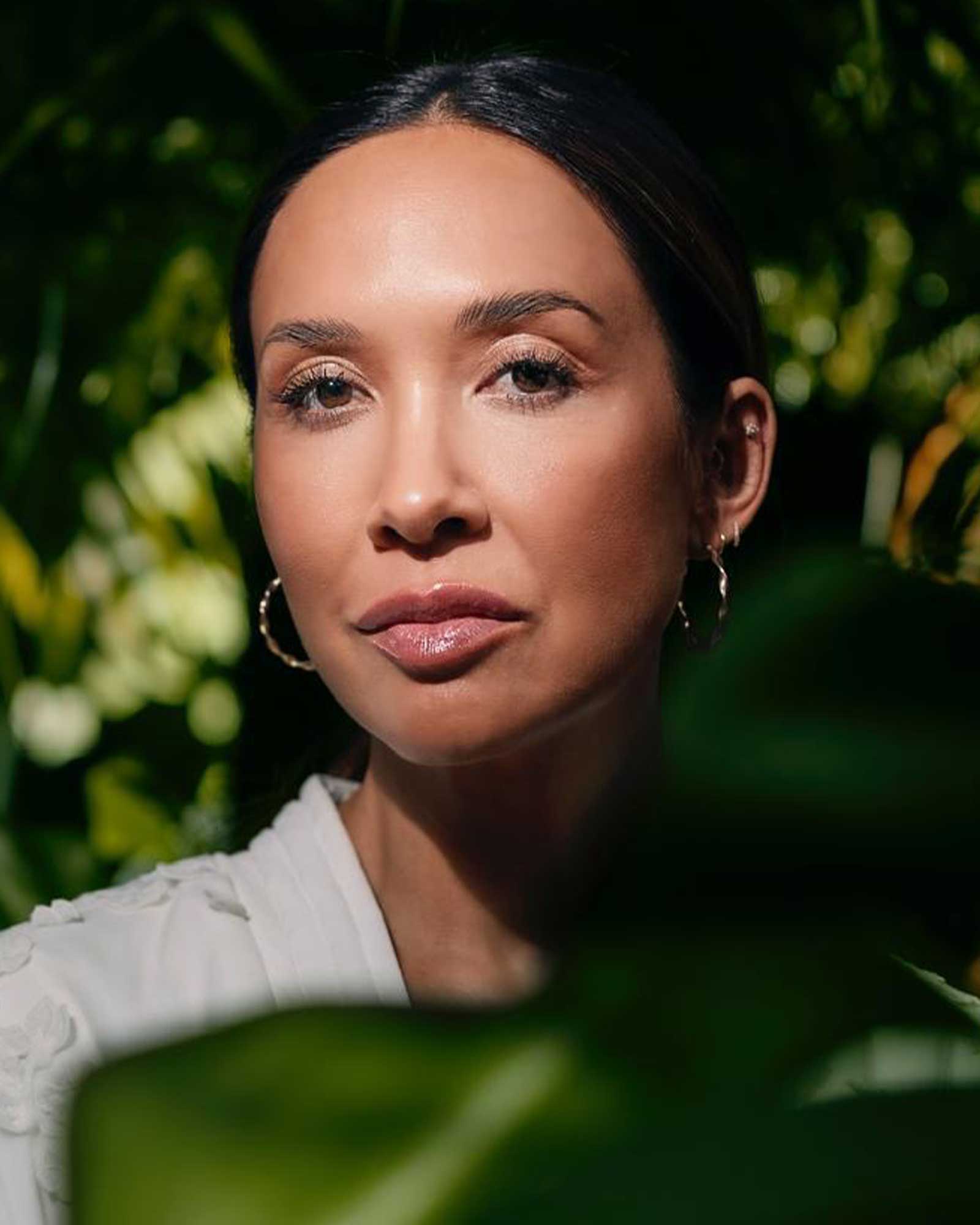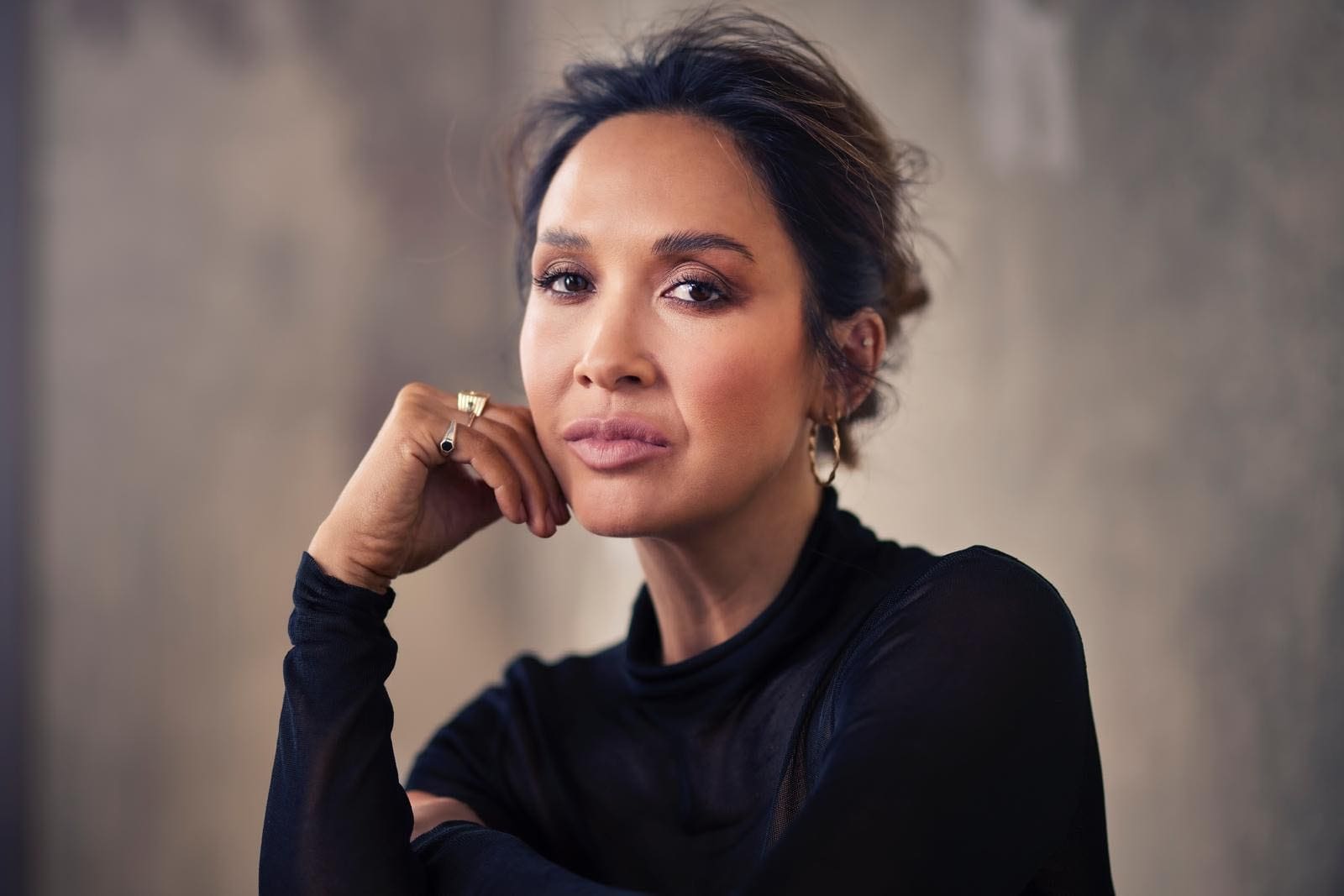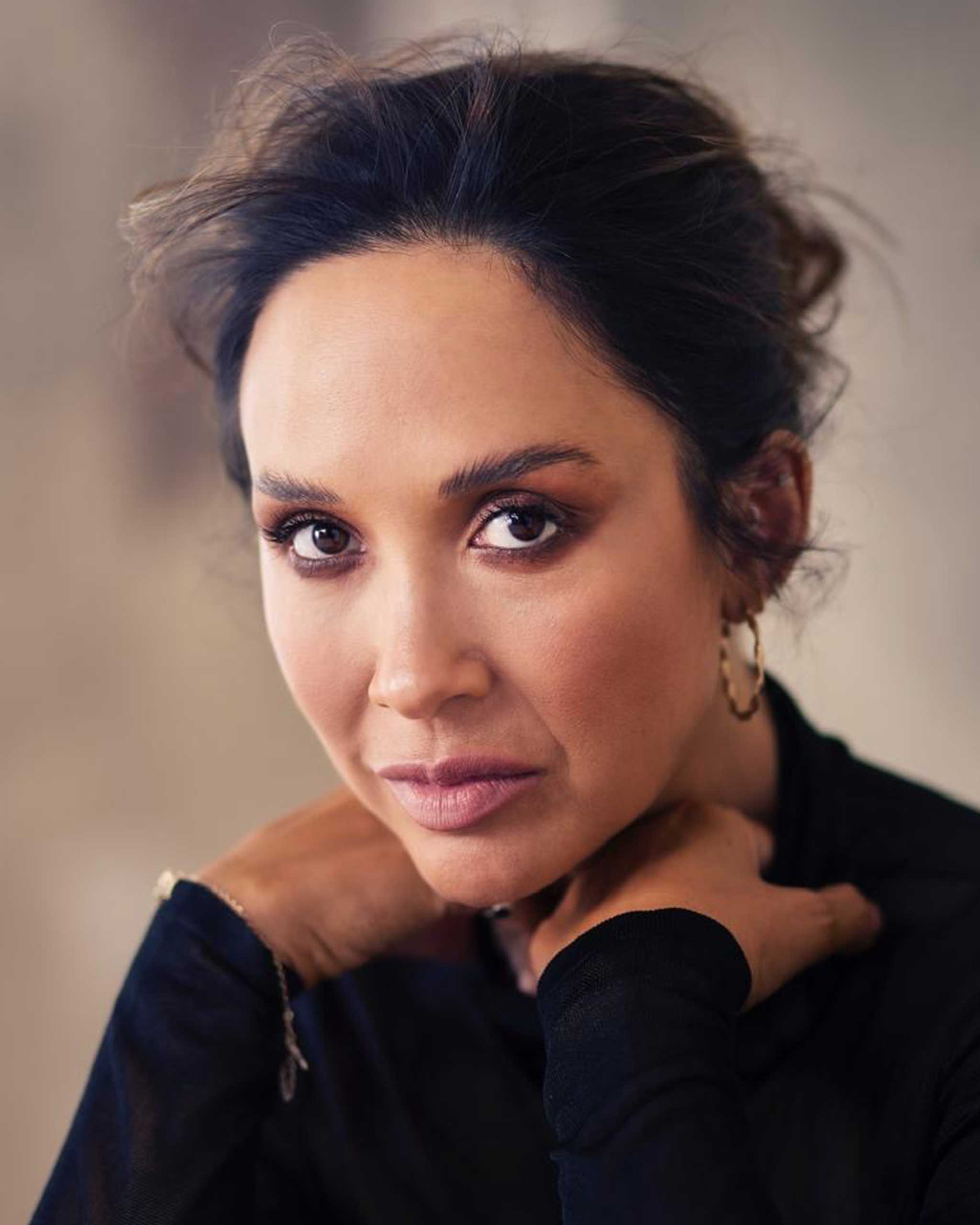“To be awarded an MBE… I never dared to dream. I didn’t think things like that happened to girls like me.” Courtesy of Myleene Klass
Awarded an MBE by King Charles III for her contributions to women’s health, miscarriage awareness, and charity work earlier this year. We spoke to the British-Filipino artist and advocate about her mother, a nurse who left Pangasinan for the UK, and how that courage influenced everything that followed.
Myleene Klass has worn many hats: musician, pop star, television presenter, radio host, model, and activist. But arguably, none of this would have been possible without the influence and support of her mother, Magdalena. “My mum came over [to the UK] as a nurse,” she tells me. “We filmed a documentary together around the beginnings of the National Health Service, how the Windrush generation and the Filipino community were so central to it. I’ve said it before, without the Filipino nurses and carers, their empathy and expertise, we wouldn’t have the NHS as we know it.”
Growing up in Norfolk, where a large Filipino community worked in both healthcare and seafaring, her father, a Navy man, also worked alongside many Filipino sailors. Myleene’s weekends were filled with church services, family cooking, and the kind of communal warmth that she says she didn’t realize was unique until she moved to London. “My aunties would cook the most amazing food. Sundays were for church. It was just this beautiful, all-encompassing experience of culture. You don’t know it’s special until it’s gone, and then you find yourself wanting to rediscover it, re-root yourself in it again.”
Myleene weaves her heritage into the fabric of her everyday life, not as a distant concept, but as a living legacy she celebrates, preserves, and proudly shares with her children. When Typhoon Haiyan devastated parts of the Philippines in 2013, she flew home with her mother to help with Save the Children. She talks about it not as a gesture, but as a necessity, an obligation born from instinct. Her connection to Pangasinan, to her mum’s hometown of Silingayen and then Dagupan, is fiercely alive. “Even this Christmas, we’re going back. I’m bringing my auntie. I want my children to understand where they come from, and to be proud of it.”
That sense of pride has powered Myleene through a career that’s as multifaceted as it is quietly pioneering. Classically trained at the Royal Academy of Music, she was faced with a choice early on: to accept the role of Mary Magdalene in Jesus Christ Superstar, or to take a chance on an unknown pop group formed through the UK’s first reality TV competition, Popstars. She chose the pop group. “People didn’t know what reality TV was yet. But I just felt it. It was a risk, but one that changed everything.” She remembers the moment she performed at Wembley, a Filipina face in an industry that rarely showed one. “To be on that stage, representing, showing what we’re capable of…that meant something.”

It’s a theme that recurs in her story: being underestimated and proving people wrong. “People look at me and think, ‘She’s small, she’s sweet, she’s from classical music.’ But Filipinos, we’re quietly strong. Our strength doesn’t shout. It’s a confidence we carry, and I’m proud of that.” That strength carried her through a second reality TV win years later, I’m a Celebrity All Stars, this time as a mother of three. “Again, people probably thought I couldn’t do it. But I did.”
Beyond television and music, Myleene’s business acumen has built something remarkable. Her clothing and lifestyle brand, one of the longest-running celebrity lines in the UK, has lasted nearly two decades, collaborating with companies such as Marks & Spencer’s and Skechers. “No one had a blueprint for that kind of longevity. But I needed to find a way to support my children as a single mother. Creating something where I could bring them to work with me, where they were part of the journey, that’s something I’m proud of.”
One of Myleene’s most defining accomplishments has been her advocacy for women’s health, particularly in the area of miscarriage and baby loss. Having experienced her own personal heartache, Myleene has used her platform to campaign for better healthcare and support for families dealing with loss. “Losing a baby is an experience that so many women go through, but the healthcare system is still lacking. I’m committed to raising awareness and making sure that women have access to the care and resources they need,” she says.
“In 2025, it is unacceptable that women are still suffering due to insufficient healthcare, and I won’t stop until that changes.” Myleene’s campaigning efforts led her to the UK Parliament, where she worked on policy changes regarding miscarriage care and women’s reproductive rights. “Being able to walk into Parliament and represent women in this way, it’s powerful,” she shares. “To see real change happening because of the experiences I’ve gone through, it’s not just my victory; it’s a victory for all women.”
Walking into Parliament. Changing legislation. Turning personal pain into public action. She speaks with conviction about the broken healthcare system for women and the lives being lost, mothers and babies, because of it. “There’s a very long way to go. But I’m not stopping. I’ve been given a platform, and I intend to use it. Women are being let down, and it’s unacceptable. Until every baby is saved, I’ll keep fighting.”
“Filipinos are breaking through. We’re being seen. And it’s a really exciting time to be Filipino, to be celebrated, to say, this is who we are: talented, kind, resilient, joyful. And the world is finally seeing it.”
Receiving an MBE from the King was a defining moment. Not just for what it represents, but for who she was representing when she stepped into the palace. “I never imagined that. Growing up as the daughter of a Filipino nurse, you just don’t think those things are for girls like you. But now I know, I wasn’t just walking in for me. I was carrying all of us with me. Our whole community. That’s what made it so emotional.”
Still, Myleene is keenly aware that visibility for Southeast and East Asians in the UK is still lacking. “There’s been progress. But it’s still not where it should be. Until you can see it, you can’t be it. I’ve had people come up to me: drag queens, Southeast Asian girls, saying they used to put pictures of me on their school folders because no one else looked like them. That matters. That’s why I keep going.”
She doesn’t shy away from discussing racism, either what she’s faced, what her children may face, and the systemic assumptions that still persist. “Racism is born of fear, and ignorance. And it’s so deeply ingrained. People are too afraid to say it out loud sometimes, but you can feel it. You walk into a room, and it’s not represented the way it should be. But I’ve got broad shoulders now. And as a mother, I absolutely won’t tolerate it. I’m proud to show the world who we are.”
As a mother, her lessons have shifted from those received to those still being learned. “My children teach me every day. The small wins, the little moments; that’s everything. We raise them, pour into them every day, and then they turn around and teach you something that just floors you. Their clarity, their compassion, it’s so pure, before the world starts weighing on them. I just want them to stay open, to trust their instincts, to be curious. Travel, speak to people, and keep your eyes open. That’s what I tell them.”

Family traditions, like cooking turon on Sundays and teaching tinikling at her son’s school, are her way of keeping culture alive at home. “I want them to love their culture, to be proud of it. Even if I’m not the best cook, my auntie and my mum do it better, they’re immersed in it. That matters.”
When asked what advice she would give to young Filipinos and mixed-race kids trying to make it in entertainment, Myleene pauses in thought. “For a long time, I tried to fit in. I thought I had to look or act a certain way to be accepted. But it’s my differences that made the difference. Being mixed race, you kind of belong to everyone and no one. But that’s a gift. You become a translator, a bridge. You carry so much, and you can give so much. There’s magic in that.”
She laughs, thinking back to her childhood in Norfolk. “My 15-year-old self would never believe what’s happening now. Filipinos are breaking through. We’re being seen. And it’s a really exciting time to be Filipino. To be celebrated. To say, this is who we are: talented, kind, resilient, joyful. And the world is finally seeing it.”
As she looks ahead, Klass is fully committed to continuing her advocacy. “Women’s healthcare is still limited. We’re still losing babies and mothers, and in 2025, that’s unacceptable. I’m not stopping until we fix this.” Her life’s work, a blend of visibility, advocacy, art, and motherhood, echoes the very essence of being Filipina: resilient, nurturing, unshakably proud. “It’s a really exciting time to be Filipino,” she says. “We’re taking over the world.”
